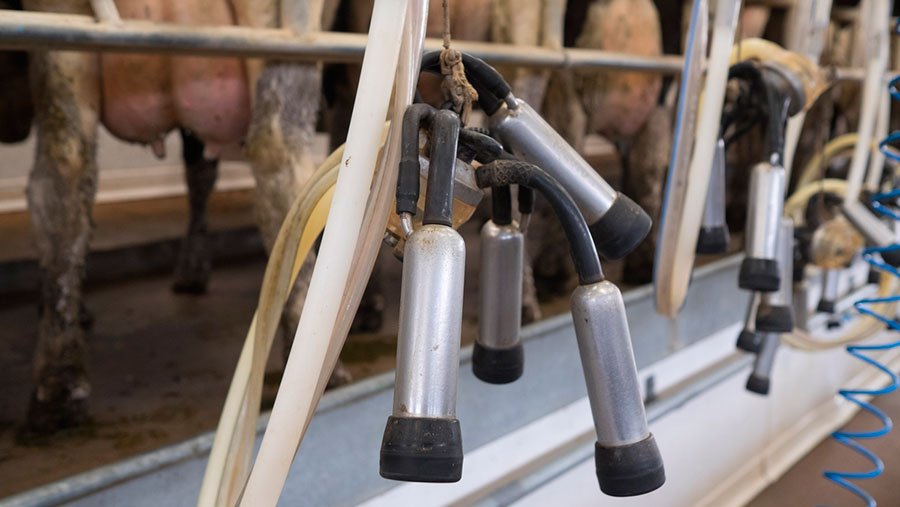Business Clinic: Options for selling extra milk
 © Tim Scrivener
© Tim Scrivener In this week’s Business Clinic, Savills gives advice on how to sell extra milk suggests what questions to ask about contracts.
I want to increase milk production but I am worried my current buyer will not take on the extra milk. What are my options?
DairyCo’s latest intentions survey found that despite the current low milk price, one-third of British producers are planning to increase milk production over the next two years.
Fundamental to increased production will be having a milk buyer who wants to take on this additional volume.
The first question should not be what are the options for the extra milk but what is the reason for increasing milk production?
Opportunities to expand, for example taking on a new unit or keeping surplus heifers, will not necessarily result in you achieving the same costs of production as you currently achieve, nor will it necessarily result in spreading fixed costs.
See also: Five charts that explain the milk price crash
You must also fully analyse the effect that changing the volume of milk produced will have on your existing milk price, in terms of both volume and profile bonuses and deductions.
Most milk contracts will have a contractual volume or profile. If production exceeds limits or the profile there could be a penalty (or loss of bonus) on all milk supplied, not just on the excess production.
Despite the headlines, many processors will take additional milk, so a conversation should be had with your existing buyer to discuss your plans.
When the outcome of this conversation is known, you will then know whether in reality they want your additional milk.
There are limited options if your buyer does not want you to increase production and most contracts prohibit producers from selling milk to a second buyer. If you are considering a new contract elsewhere, there are some points to bear in mind:
It is always wise to take legal advice:
- Check the notice period for leaving (current and new processor).
- If your current milk buyer is a co-op and you have invested in it, how long will it take for your investment to be refunded and how much of your investment will be returned?
- Check the pricing formula – if no formula, how are prices set and who negotiates on your behalf – is the producer representation good?
- Check what volume you are contracting for and any penalty for over/under delivery.
- Check timing of payments and when/how these can be changed.
- Assess the potential impact of deductions based on your likely production.
- Talk to other producers to get their impression of potential milk buyers.
- Check out the company through its accounts, activities and what is being said about it – what does it produce, is it secure, where does it in turn sell its milk or dairy products – is it exposed to one large contract?
The information provided in these articles does not constitute definitive professional advice and is provided for general information purposes only.
Do you have a question for the panel?
Outline the issue in no more than 350 words and Farmers Weekly will put your question to a member of the panel. Please give as much information as possible and send your inquiry to Business Clinic, Farmers Weekly, RBI, Quadrant House, The Quadrant, Sutton, Surrey SM2 5AS. You can also email your questions to fwbusinessclinic@rbi.co.uk or post your question as a comment below this story.

